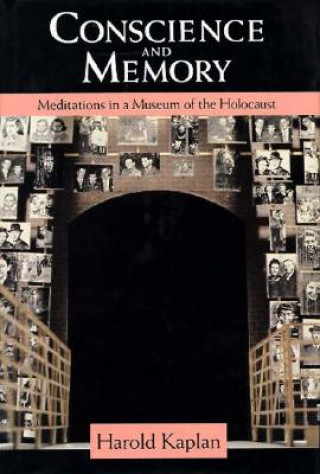
Kód: 04039146
Conscience and Memory
Autor Harold Kaplan
Prompted by the suicides of Jean Amery and Primo Levi, Harold Kaplan sought to find out what the Holocaust can be said to affirm even in the face of its overwhelming negation of meaning. "I wrote this book," he explains, "to trans ... celý popis
- Jazyk:
 Angličtina
Angličtina - Väzba: Pevná
- Počet strán: 230
Nakladateľ: University of Chicago Press, 1994
- Viac informácií o knihe

31.71 €
Dostupnosť:
50 % šanca Máme informáciu, že by titul mohol byť dostupný. Na základe vašej objednávky sa ho pokúsime do 6 týždňov zabezpečiť.
Máme informáciu, že by titul mohol byť dostupný. Na základe vašej objednávky sa ho pokúsime do 6 týždňov zabezpečiť.Prehľadáme celý svet
Mohlo by sa vám tiež páčiť
-

Business Partnerships and Organizational Performance
214.46 € -

Boarding Schools: All You Need to Know
41.02 € -

Clean Sweep!
18.31 € -6 % -

Blank Cookbook For Kids
17.59 € -3 % -

Briefe an Milena
18.51 € -

quelques seconde pres
12.58 €
Darčekový poukaz: Radosť zaručená
- Darujte poukaz v ľubovoľnej hodnote, a my sa postaráme o zvyšok.
- Poukaz sa vzťahuje na všetky produkty v našej ponuke.
- Elektronický poukaz si vytlačíte z e-mailu a môžete ho ihneď darovať.
- Platnosť poukazu je 12 mesiacov od dátumu vystavenia.
Informovať o naskladnení knihy
Zadajte do formulára e-mailovú adresu a akonáhle knihu naskladníme, zašleme vám o tom správu. Postrážime všetko za vás.
Viac informácií o knihe Conscience and Memory
Nákupom získate 78 bodov
 Anotácia knihy
Anotácia knihy
Prompted by the suicides of Jean Amery and Primo Levi, Harold Kaplan sought to find out what the Holocaust can be said to affirm even in the face of its overwhelming negation of meaning. "I wrote this book," he explains, "to translate the Holocaust out of the moral and intellectual shock which contemplates the alienation of humanity from itself. I wished to understand the "crime against humanity" as a viable category of the moral reason. And I wished to respond to the written testimony of Holocaust victims and survivors as if the issue of their survival were present to us today." Kaplan simulates the response to a long visit to the new Holocaust museum in Washington, DC, which, crucially for Kaplan, is sited in direct view of the Jefferson and Lincoln monuments, powerful symbols of humanist democracy. He insists the Holocaust be viewed not only in terms of personal ethics but modern political ethics as well: for Kaplan the affirmative legacy of the Holocaust is its focus on the dangers of nationalism, racism and all forms of separatist group identities. It challenges the historicism, cults of power and scientistic politics of modernity. And it challenges the moral passivity and relativism of mass politics in Western and Eastern societies. The opening of the Holocaust museum has sparked a debate that reflects a larger debate over the Holocaust's "meaning," its translatability for ordinary understanding. Some deny any possible response except that of overwhelming grief and horror. For others, the "lesson" of the Holocaust implies, in the words of Robert Nozick, that "mankind has fallen...Humanity has lost its claim to continue." The moral life and political institutions will remain endlessly tormented by the Holocaust. That, Kaplan tells us, is the ultimate content of its "meaning", and is what makes the discussion of "meaning" much more than a mourner's symposium. The museum itself, according to Kaplan, has become an impressive memorial to the principle of humanism, instructing the collective memory of this democracy and that of nations everywhere which aspire to civil existence. Out of its awful darkness the Holocaust throws the light of conscience for those capable of receiving it.
 Parametre knihy
Parametre knihy
Zaradenie knihy Knihy po anglicky Humanities History History: specific events & topics
31.71 €
- Celý názov: Conscience and Memory
- Autor: Harold Kaplan
- Jazyk:
 Angličtina
Angličtina - Väzba: Pevná
- Počet strán: 230
- EAN: 9780226424163
- ID: 04039146
- Nakladateľ: University of Chicago Press
- Hmotnosť: 566 g
- Rozmery: 234 × 160 × 21 mm
- Dátum vydania: 01. January 1994
Obľúbené z iného súdka
-

Man's Search for Meaning
7.05 € -7 % -

The Rape of Nanking
15.95 € -23 % -
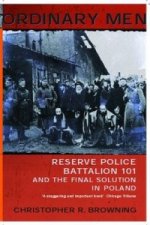
Ordinary Men
10.94 € -24 % -
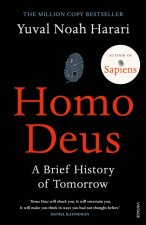
Homo Deus
12.78 € -24 % -

Delirious New York
30.07 € -16 % -

Conquerors
11.86 € -18 % -
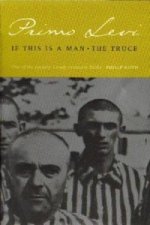
If This Is A Man/The Truce
14.42 € -23 % -
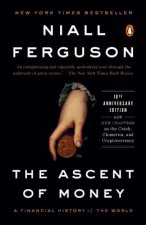
Ascent of Money
17.90 € -14 % -

Diary of a Young Girl
9.61 € -
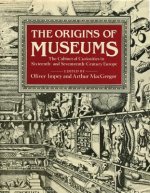
Origins of Museums
58.93 € -17 % -

Diary of a Young Girl
10.12 € -22 % -
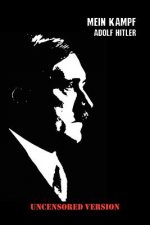
Mein Kampf
31.81 € -

Empires of the Sea
14.42 € -23 % -

An Illustrated History of Filmmaking
19.74 € -19 % -

Edge of the World
14.83 € -23 % -

Settling the Earth
83.49 € -

Behemoth
21.68 € -
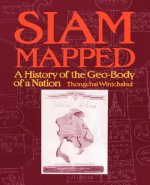
Siam Mapped
38.67 € -
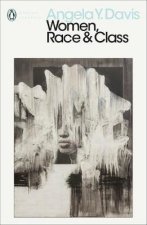
Women, Race & Class
10.02 € -23 % -

The Complete MAUS
18.72 € -14 % -
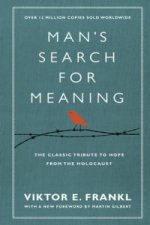
Man's Search For Meaning
16.57 € -23 % -
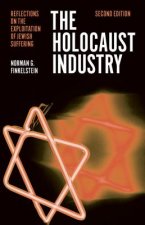
Holocaust Industry
12.37 € -15 % -

Eichmann in Jerusalem
11.04 € -23 % -

Bloodlands
12.88 € -24 % -

Brief History of Japan
14.01 € -18 % -

Secret Lives of Colour
14.62 € -24 % -

Scouting for Boys
10.84 € -20 % -

Imperialism: The Highest Stage of Capitalism
7.46 € -13 % -

East West Street
10.22 € -24 % -

Mein Kampf - The Ford Translation
41.84 € -

Man's Search For Meaning
10.94 € -24 % -
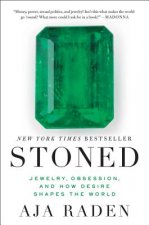
Stoned
11.14 € -23 % -
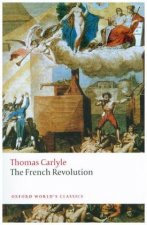
French Revolution
15.54 € -23 % -

Twelve Years a Slave
3.57 € -24 % -
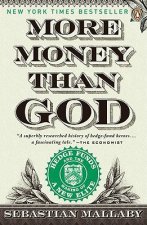
More Money Than God
18.61 € -17 % -
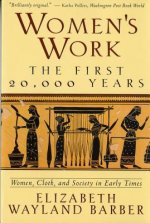
Women's Work
20.66 € -10 % -
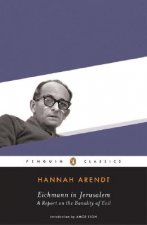
Eichmann in Jerusalem
15.34 € -21 % -
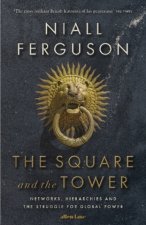
Square and the Tower
15.03 € -24 % -

My Mad Fat Diary
12.27 € -23 % -
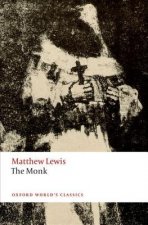
Monk
9.40 € -16 % -

History of the World in Twelve Maps
16.57 € -23 % -
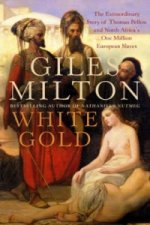
White Gold
14.42 € -23 % -
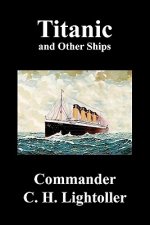
Titanic and Other Ships
13.91 € -

Golden Atlas
27.41 € -23 % -

Access to History for the IB Diploma Rights and protest Study and Revision Guide
37.75 € -
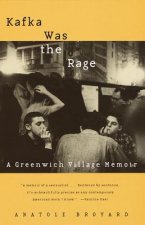
Kafka Was the Rage
16.05 € -8 % -

Better Angels of Our Nature
20.86 € -23 % -

Good Night Stories for Rebel Girls: 50 Postcards
15.65 € -5 % -
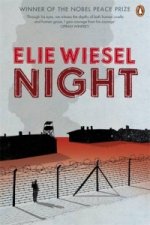
Night
11.14 € -23 %
Osobný odber Bratislava a 2642 dalších
Copyright ©2008-24 najlacnejsie-knihy.sk Všetky práva vyhradenéSúkromieCookies


 21 miliónov titulov
21 miliónov titulov Vrátenie do mesiaca
Vrátenie do mesiaca 02/210 210 99 (8-15.30h)
02/210 210 99 (8-15.30h)